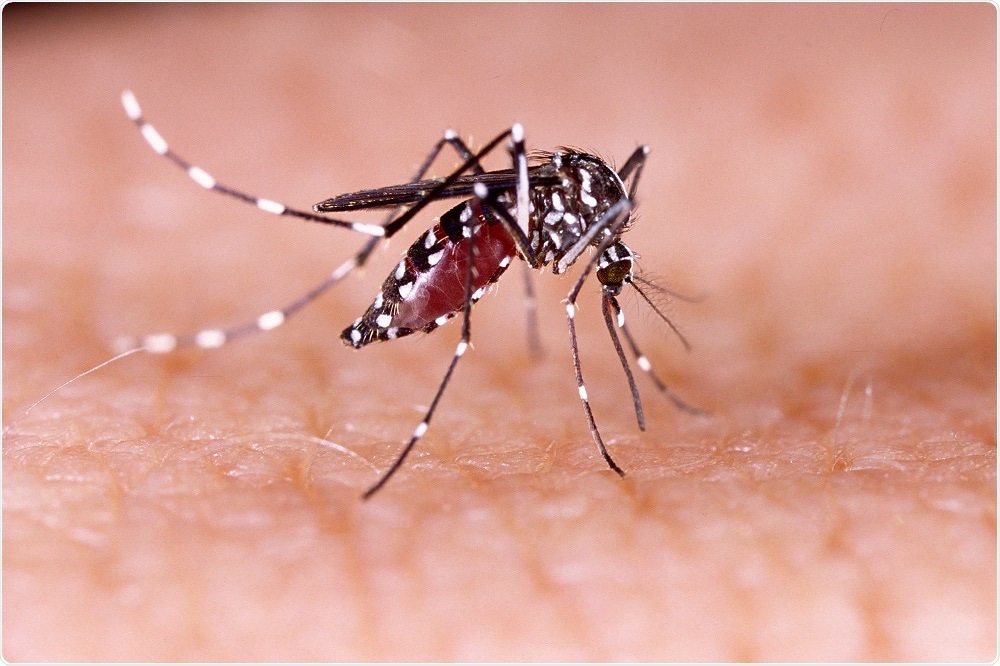Researchers from Florida State University have made an important discovery about the Zika virus that could lead to the development of more effective measures to protect people.
 Image Credit: Tacio Philip Sansonovski / Shutterstock
Image Credit: Tacio Philip Sansonovski / Shutterstock
Professor Hengli Tang and colleagues compared the Zika virus to the Dengue virus. Initially, the two viruses appear to be very similar; they are both transmitted by mosquitoes and their genetic material is organized in a similar way. However, Zika is far more effective at penetrating barriers to infection.
Tang and team wanted to find out whether Zika manages to reach more sites in the body than Dengue does because it is better at spreading throughout the body. To test this, they grew macrophages from stem cells and then exposed them to either the Zika virus or the Dengue virus.
As reported in the journal Stem Cell Reports, the researchers found that Zika is unique in that it circulates throughout the body rather than becoming immobilized like most viruses do.
The virus achieves this by “hitching a ride on macrophages to other parts of the body," says Tang.
Usually, macrophages circulating in the bloodstream migrate to an infection site to fight a virus once it has invaded.
When the researchers measured the mobility of the macrophages on glass slides, they found that cells infected with Dengue were effectively immobilized and stayed in one place while they fought the infection.
Zika-laden macrophages, on the other hand, continued to migrate.
In a mammal, the macrophages infected with Zika would have continued circulating in the blood stream, says Tang, which may be why Zika is so effective.
The question now is whether the Zika virus also uses the macrophages to cross the placenta barrier, the blood-brain barrier and the testicular barrier.
If you understand how [the Zika virus is able to] cross these barriers, then you can develop more effective countermeasures to protect people."
Professor Hengli Tang, Florida State University